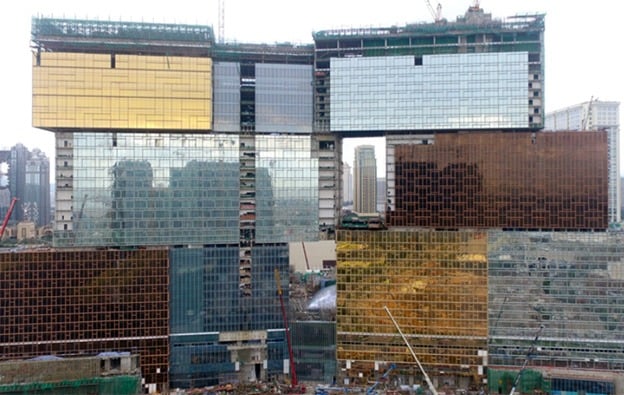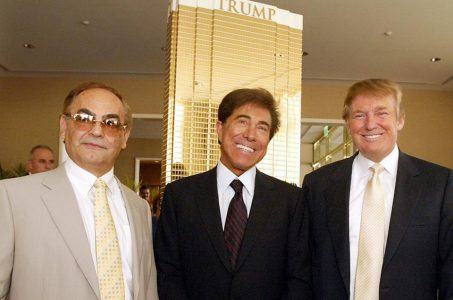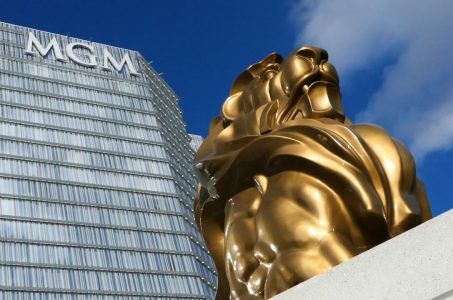MGM Delays Cotai Casino Opening to Second Half of 2017, Macau Considers Tax Change
Posted on: January 18, 2017, 11:09h.
Last updated on: January 18, 2017, 11:10h.
The opening of MGM’s Cotai casino is being pushed back for a second time.
The $3.1 billion resort in Macau will now open in the second half of 2017, as opposed to the second quarter. MGM China Holdings, the incorporated subsidiary of Las Vegas-headquartered MGM Resorts International, announced the setback as required by rules governing publicly listed companies on the Hong Kong Stock Exchange.

MGM citied the “complexity of the design” and the company’s “commitment to a successful opening” as reasons for the postponement.
When it does open, the integrated casino and hotel resort is expected to come with 500,000 square feet of gaming space featuring 2,500 slot machines and 500 table games. The property will offer approximately 1,500 hotel rooms, a high-end spa, and retail space.
In February of 2016, MGM announced the first postponement of the Cotai project. At the time, company officials said Macau’s stressed economy was to blame.
Rolling With the Crowd
The Cotai Strip is a term coined by Sheldon Adelson’s Las Vegas Sands Corporation. The Vegas casino power player came up with the moniker for the area after building its Venetian Macao and Palazzo resorts on reclaimed land. The Strip connects the islands of Coloane and Taipa.
Today, the Cotai Strip is the most sought-after real estate in Macau. But like the rest of the gaming-friendly special administrative region of the People’s Republic of China, across the city casinos are changing their ways to appeal to a wider demographic.
Though the VIP segment did rebound in 2016, revenues are nowhere near they once were. With fewer high rollers being brought in by junket operators, resorts have turned to the middle class visitor. So far, it’s working.
Adelson’s Parisian, his latest Macau endeavor that opened last year, features a half-size replica of the Eiffel Tower. Steve Wynn’s Wynn Palace offers guests a sky cab ride attraction that provides breathtaking views of the Strip.
MGM’s failure to stay on schedule with the construction of its Cotai casino is thought to be partly due to casino executives reworking the resort’s layout as the market changed over the last three years. Its finished product will bring Macau “Asia’s first dynamic theater and a spectacle to wow every guest who steps foot in our resort,” the company said in its property description.
Tax Modifications
After Macau gaming revenues plummeted from $45 billion in 2013 to $28 billion last year, regulatory officials are now reportedly considering easing tax burdens on operators to help reignite some sense of economic enthusiasm.
The South China Morning Post says government policymakers are willing to listen to arguments for reducing tax structures currently placed on resorts. Casinos presently pay 39 percent of their gross gambling revenue to the city.
“At the moment, we do not have any concrete plan but we are open to listen to the opinions,” Macau Gaming Inspection and Coordination Bureau Director Paulo Martins Chan said.
As Japan looks to legalize land-based resort casinos, and gambling expansion continues to take place in other Asian countries, Macau’s once stronghold on the industry is slowly evaporating.
Related News Articles
Connecticut Airport Casino Wins Right-To-Know Case Against MGM
Wynn Land Deal Shows Deep Connections Between Wynn, Trump, and Ruffin
Most Popular
Mirage Las Vegas Demolition to Start Next Week, Atrium a Goner
Where All the Mirage Relics Will Go
Most Commented
-
Bally’s Facing Five Months of Daily Demolition for Chicago Casino
— June 18, 2024 — 12 Comments
















No comments yet